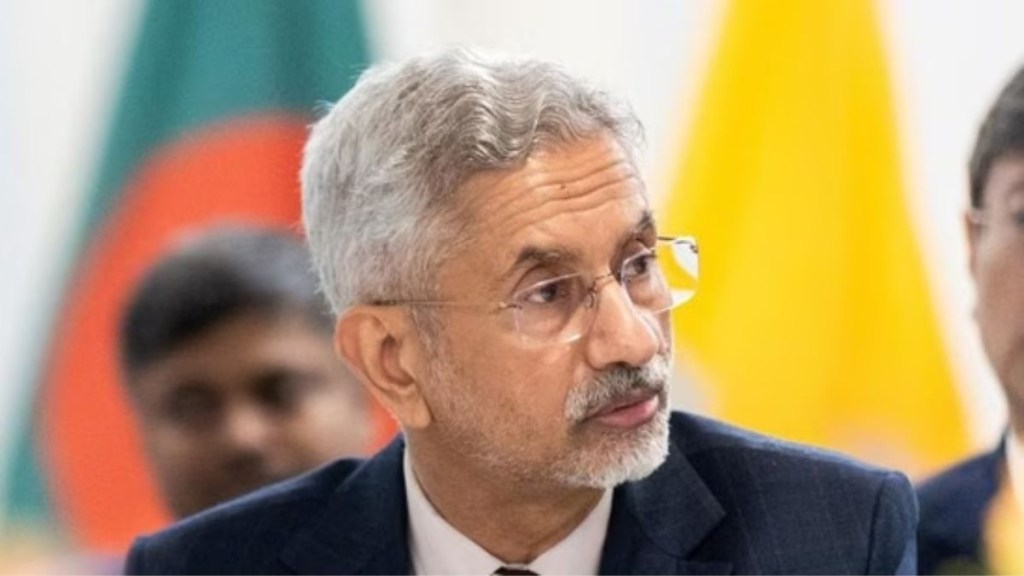Ahead of the G20 Summit in November, India’s External Affairs Minister, S Jaishankar, has underscored the growing strain on the global order due to ongoing conflicts. During his address at the G20 session in Johannesburg, South Africa, Jaishankar highlighted the need for an inclusive and multilateral approach to address these challenges and urged nations to prioritize international law and peaceful solutions.
A Call for Multilateralism
His remarks on Friday (Feb 21, 2025) at the G20 session, titled ‘Discussion on the Global Geopolitical Situation,’ brought attention to the current state of global geopolitics, which is increasingly defined by multiple unresolved conflicts. These conflicts, he noted, are threatening the fabric of the global order and underscoring the urgency for respect for international law.
“Global governance cannot be confined to the interests of a few nations,” Jaishankar stated, emphasizing the importance of plurilateralism as a means to address global deficits in cooperation. His call for broader collaboration reflects India’s advocacy for a more equitable global system where the voices and concerns of developing countries are not sidelined.
The Middle East
Jaishankar welcomed the ceasefire agreement between Israel and Hamas and the release of hostages. He reiterated India’s firm stance against terrorism and its support for a two-state solution to the Israeli-Palestinian conflict. He also highlighted the importance of maintaining peace in Lebanon and finding a solution for Syria that is led by the Syrians themselves. Jaishankar emphasized the need for stability in the region, stressing that global peace and security depend on it.
On Maritime Security:
He noted the significance of maritime security in the region and India’s role in ensuring safe and open sea lanes. Jaishankar mentioned that the Indian navy has contributed to security efforts in critical areas like the Arabian Sea and the Gulf of Aden, with the goal of ensuring uninterrupted global maritime trade.
The Russia-Ukraine Conflict
The minister reiterated India’s consistent position on the Russia-Ukraine conflict, emphasizing the importance of resolving it through dialogue and diplomacy. He stressed that global expectations are for the parties involved to come together and work towards ending the war peacefully. At the same time, he expressed concern that other ongoing conflicts, such as those in the Democratic Republic of Congo and Sudan, are often overlooked and deserve more attention.
On the Indo-Pacific and International Law:
In the runup to the G20 Summit to be held on November 22-23 this year, during the foreign ministers’ meeting Jaishankar firmly stated that international law, especially the United Nations Convention on the Law of the Sea (UNCLOS) of 1982, must be respected.
He called for the observance of international agreements and emphasized that coercion should not be tolerated in resolving disputes. Jaishankar warned against unilateral actions that undermine the global order and urged for multilateral solutions to regional challenges.
The minister’s remarks came close on the heels of china’s participation in Pakistan’s multinational AMAN-2025 naval exercise. Other countries including Malaysia, Italy, Japan, Indonesia the US and observers from 32 other nations participated.
While Beijing has said its focus was on anti-piracy and maritime security, overseas interests and protecting sea lanes, its participation in the drill aligned with its naval expansion.
India remains cautious of China’s “String of Pearls” strategy, which includes construction of military bases and alliances across the region. According to reports, earlier this month sent two research vessels to the Indian Ocean, this caused concerns in New Delhi.
In his address the minister underlined India’s commitment to safeguarding maritime security, particularly in the Arabian Sea and the Gulf of Aden. And highlighted the need to restore normal maritime commerce, which has been disrupted due to geopolitical tensions.
On Multilateralism and UN Reform:
Jaishankar pointed out the deteriorating state of multilateralism, noting that the United Nations and its Security Council are often paralyzed by gridlocks. He stressed that it is not enough to simply restore the functionality of these institutions; there needs to be a comprehensive overhaul to ensure that they are more inclusive, effective, and representative of the modern world order.
A More Inclusive Approach
His address also called for the urgent reform of global institutions, especially the United Nations and its Security Council, which, according to him, have often been paralyzed by gridlocks. “Multilateralism itself lies deeply damaged,” he said, urging for greater representation and more effective functioning of global institutions. His vision for the future of global governance includes less opaque and unilateral decision-making, with a stronger emphasis on cooperation among nations, particularly in the face of shared global challenges.
From Energy to Disaster Resilience
The minister’s address at the G20 also touched on various global issues, including food, energy, and health security. He reaffirmed India’s commitment to promoting sustainable development, disaster resilience, and financing for a just energy transition, while balancing the growth needs of developing countries with climate action.
Additionally, Jaishankar underlined India’s support for debt sustainability frameworks that balance development needs with fiscal responsibility, especially for low-income nations.
A Divided G20: Tensions with the United States
While India has called for greater collaboration, the US has expressed tensions regarding South Africa’s approach to international issues. Earlier this month US Secretary of State Marco Rubio announced that he would not attend the G20 Summit in Johannesburg, citing disagreements over South Africa’s domestic land expropriation policies and its foreign policy stances, particularly regarding Israel and Iran.
According to US Embassy Spokesperson, US Charge d’Affaires to South Africa Dana Brown is representing United States at the G20 Foreign Ministers’ Meeting in South Africa.

